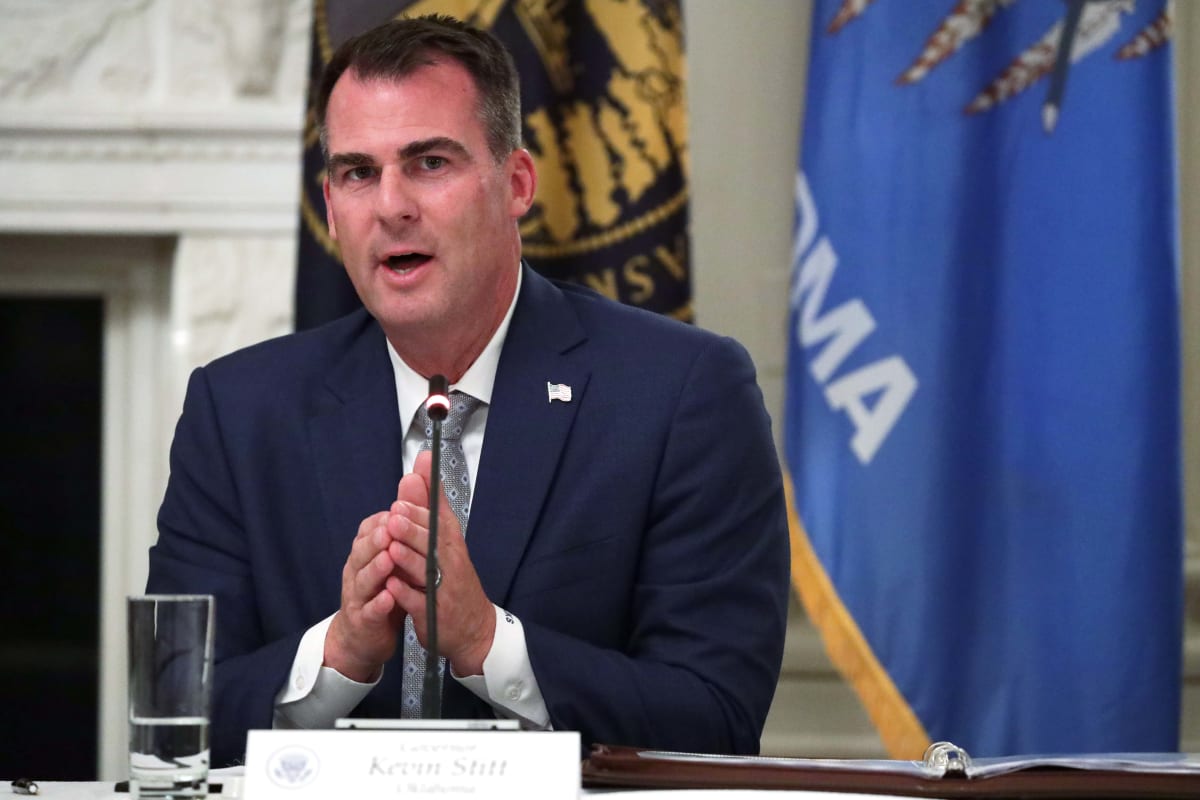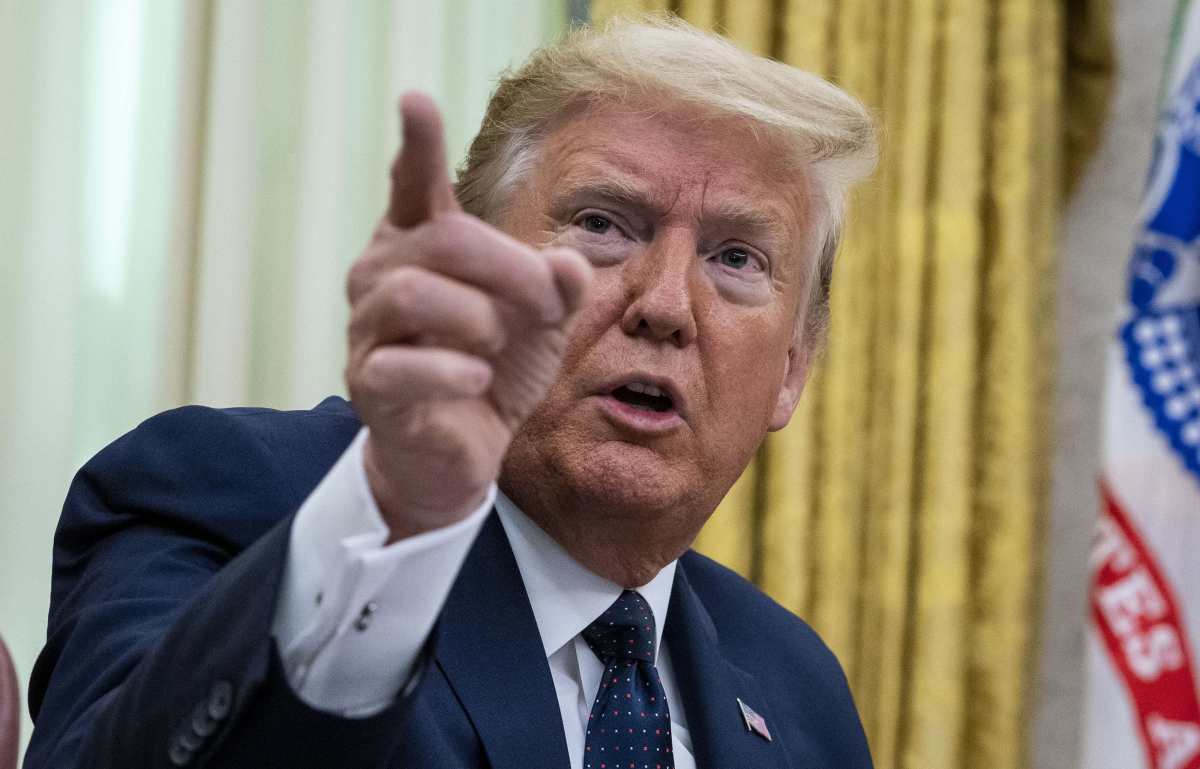GOP-controlled states push laws to protect right to religious worship from future Covid-19 lockdowns

While the outbreak of the coronavirus pandemic has put public health and economy in turmoil, developments in the Republican-controlled states suggest that even the realm of religion has been influenced by the deadly virus. A number of state legislatures controlled by the GOP have made moves to shield the right to religious worship from lockdown measures.
The Washington Free Beacon on Tuesday, May 4, reported that states like Montana, Oklahoma and Arkansas are pushing legislation that would protect religious liberty if the government issues shutdown orders asking places of worship to either entirely close their doors or operate under restrictions. The Montana Religious Freedom Restoration Act (RFRA), which has been signed into law by the state’s Republican Governor Greg Gianforte, says the government “may not substantially burden a person's right to the exercise of religion”.
RELATED ARTICLES
Covid-19’s Challenge to the Christian Church: What Would Jesus Do?
“Montana joins 21 other states with RFRA laws, where it has historically been used to allow Native American children to wear braids in school, Sikhs to wear turbans in the military, and Christian employers to refuse to cover abortions under their health insurance policies,” a spokesperson for Gianforte was quoted as saying by the Montanta Standard.

Similarly in Oklahoma, Republican Governor Kevin Stitt has signed a law that protects religious worship from restrictions. “Throughout 2020, we saw First Amendment rights being ignored in states across our nation,” state GOP representative Brian Hill, who authored Oklahoma's legislation, was quoted as saying by Free Beacon. “Based on the First Amendment and the Oklahoma Constitution, the undue burden created by blocking our places of worship from gathering was unacceptable and required a legislative response to insure that in Oklahoma this type of government overreach would not be tolerated,” he added.
Arkansas even eyes to amend its constitution
The Arkansas legislature, on the other hand, has gone to the extent of proposing an amendment to the state constitution that would protect religious worship. The amendment is due to undergo voting by the state’s voters next year.
According to the Free Beacon, the state laws are likely to get support from the Supreme Court which has repeatedly spoken against imposing restrictions on religious worship during the pandemic. In November, the top court in a 5-4 verdict supported legal challenges that religious organizations brought against state-issued restrictions on in-personal religious services. Democratic bastions like New York and California found themselves at the receiving end for imposing restrictions on religious institutions even while easing restrictions on business and other bodies.
“I believe each individual has the right and capacity to make an educated decision for their own health and safety,” Hill said, adding: “I also question the validity of requiring places of worship to close while not expecting the same of big box stores with the same capacity limits.”

Montana state GOP Senator Carl Glimm, who has authored the state’s bill, said the legislation was necessary to protect the places of worship from being targeted by the government. “Does the government have a compelling interest to close churches?” he asked. “This bill would have given churches their day in court, for the government to have to prove that there was a sufficient need to close them. … The bill will allow a fair day in court for when our religious liberty is being limited,” he added.
The Alliance Defending Freedom, a religious liberty organization that has backed the challenge thrown at shutdown measures, praised the state lawmakers for speaking out against “government attempts to burden their ability to live and worship according to their faith", the Free Beacon added.
Laws will be used to challenge non-discrimination statutes, critics fear
However, those criticizing the laws said that they would be used to challenge the government’s non-discrimination statutes. “This [law] allows individuals to turn the shield of religious freedom we all hold dear into a weapon to attack LGBTQ and Indigenous Montanans,” Shawn Reagor, director of Equality and Economic Justice with the Montana Human Rights Network, was quoted as saying by Associated Press.

In February 2017, days after former president Donald Trump took over as the president, The New Republic said in a report that Trump and other members of the GOP were hell-bent to redefine the meaning of religious freedom. “Trump, a declared Presbyterian, may not be a man of deep faith. But after winning the GOP nomination, he won over the religious right and now, he’s delivering on his promises with the help of Republicans on Capitol Hill. In doing so, these supposed defenders of religious freedom are instead waging a war on it, further blurring the separation of church and state in America,” the report added.
Barry Lynn — the then executive director of Americans United for the Separation of Church and State — had said: “Ironically, the single greatest threat to religious freedom comes from a radical redefinition of the idea itself...I think the Framers of the Constitution would be appalled at the radical revisionism of the First Amendment being advocated by some. More importantly, I think the America of the future will look askance at efforts to elevate majority faiths or subject not so traditional believers to the status of an orphan class to be denied genuinely equal treatment in this diverse country.”
Even after the change of guard at the White House, the GOP’s stance on religious freedom has not changed.
The US has seen 32.5 million people getting affected by the deadly virus while the death toll is more than 578,000.










